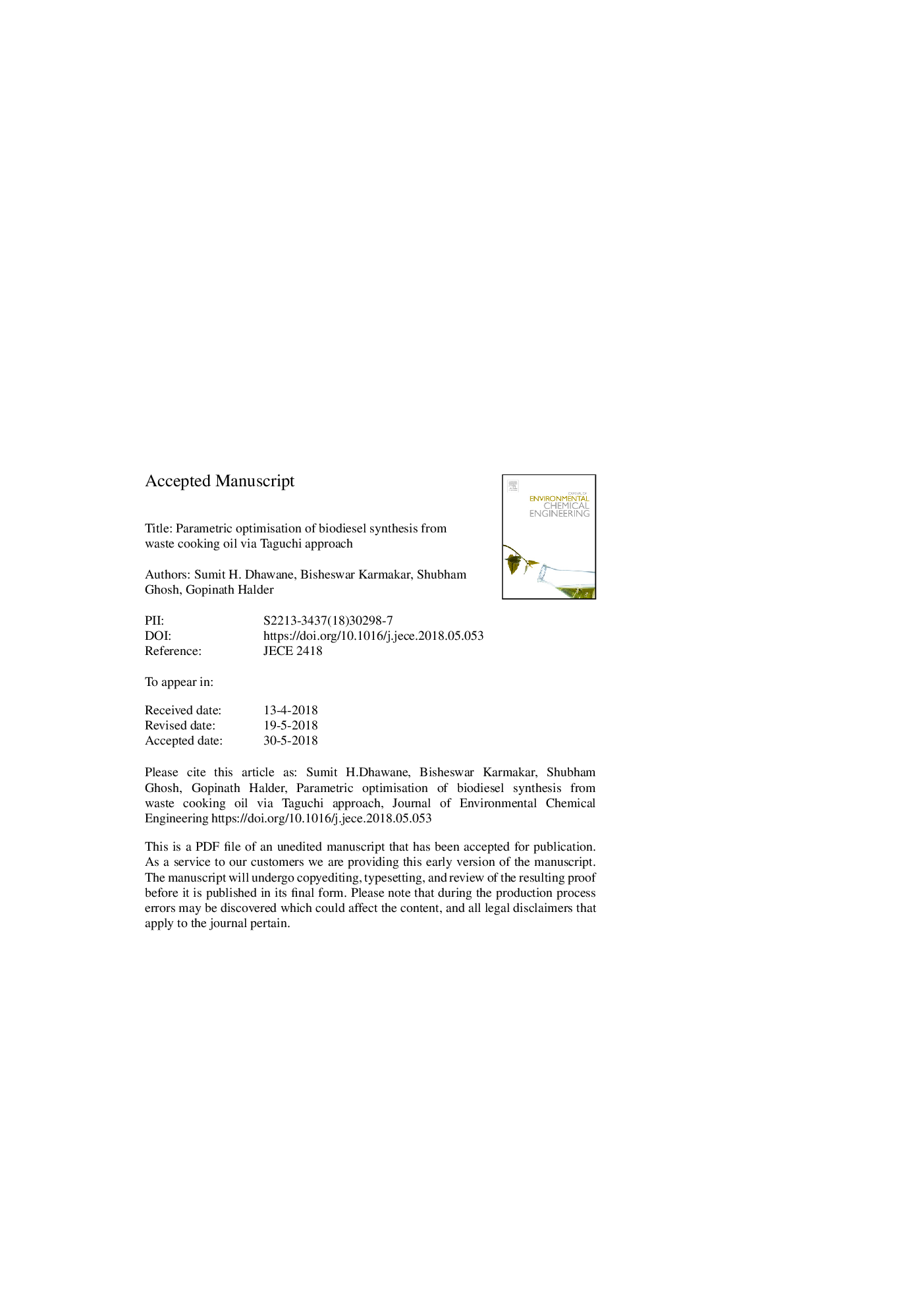| Article ID | Journal | Published Year | Pages | File Type |
|---|---|---|---|---|
| 6663834 | Journal of Environmental Chemical Engineering | 2018 | 32 Pages |
Abstract
Biodiesel has gained a significant attention as a clean alternative to the convention diesel over the couple of years. However, its production cost is a concerning factor mainly due to feedstock unavailability in abundance. Hence, the present study highlights the use of waste cooking oil (WCO) as a feedstock for biodiesel production by esterification, which is made feasible by optimization using Taguchi approach. L9 orthogonal array is utilized for designing an experimental matrix considering four parameters i.e. reaction time, reaction temperature, molar ratio of oil to methanol and catalyst concentration at three different levels. The Taguchi approach allows an identification of significance of the parameters affecting the FFA (free fatty acid) conversion by analysing the response through analysis of variance (ANOVA). Among the four considered parameters, temperature, molar ratio of oil to methanol and reaction time emerged as significant parameters with contribution factors 71.6%, 21.5%, and 5.3% respectively. Maximum FFA conversion of 95.376% was obtained with homogeneous H2SO4 catalyst under conditions: catalyst concentration 5â¯wt%, reaction time 3â¯h, temperature 60â¯Â°C and oil to methanol ratio 1:12. Kinetic studies of the esterification process revealed that it follows pseudo-first order kinetics with an activation energy (EA) 986.37â¯J and rate constant 0.0095â¯hâ1. Fuel characterization results revealed that the produced biodiesel possesses properties which are comparable to petro-diesel. It can be inferred that optimised production of biodiesel from WCO could give a sustainable and lucrative method for the efficient production of biodiesel.
Related Topics
Physical Sciences and Engineering
Chemical Engineering
Chemical Engineering (General)
Authors
Sumit H. Dhawane, Bisheswar Karmakar, Shubham Ghosh, Gopinath Halder,
